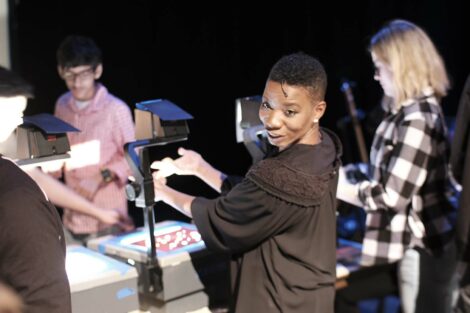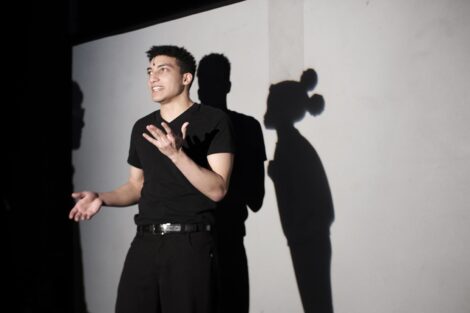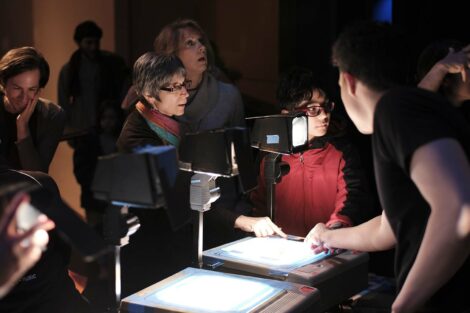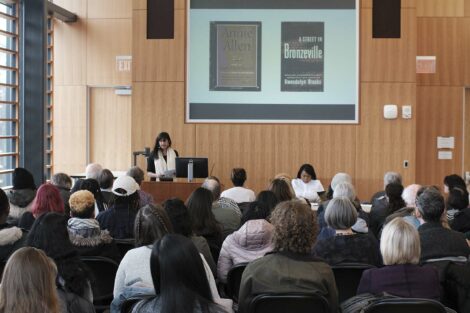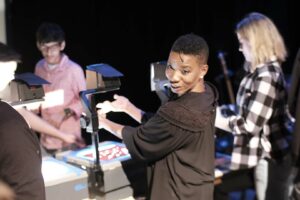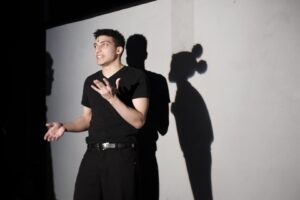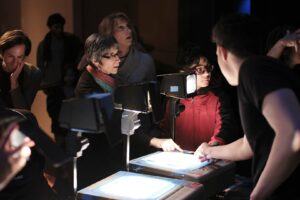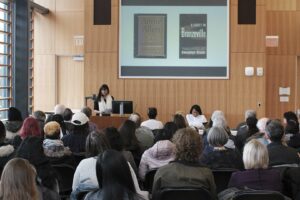By Stephen Wilson
A single luminous screen hangs above the stage, a blank slate for imagining anything.
Tonight it will imagine Pulitzer Prize-winning poet Gwendolyn Brooks.
Soon four overhead projectors will provide the settings and characters, cuts and pans, pacing and sequence, montage and emotion. Cutting in and among those projectors are actors, both behind the screen and center stage, props, singers, and a four-piece band.
A movie in the most untraditional sense is shot, edited, and premiered right before the audience’s eyes as people follow live and projected action.
This is Manual Cinema.
The Chicago-based multimedia theater troupe artistically constructed the broad outlines of Brooks’ life, from growing up to first publishing a poem, from marriage to motherhood, from losing her parents to influencing a generation of artists, readers, and community members. The story was supported by a buoyant soundtrack composed by Chicago musicians and composers Jamila Woods and Ayanna Woods.
To help theatergoers prepare for the event, two assistant professors of English held a lecture to convey the weight of Brooks’ authority in Black culture and the importance of her work.
Randi Gill Sadler spoke about Brooks’ poetics and poethics, how her work captured the imagery and energy of the times, from witnessing the Harlem Renaissance to participating in the Black Power Movement, from sharing work of young artists in Chicago Defender, a newspaper founded primarily for Black readers, to moving her work to Third World Press, a Black-owned publishing house.
Megan Fernandes emphasized the strength of Brooks’ persona poems, a narrative mask that allowed her to demythologize people, history, and situations by writing from another’s perspective.
The stage performance stressed her human connection, writing letters to children and prisoners, traveling to Africa, responding to the Chicago race riots, and inspiring a generation of writers.
Following the show, audience members could step onstage and see how the magic worked by speaking with the cast and playing with projectors, feeling the inspiration of the Emmy award-winning collective.
